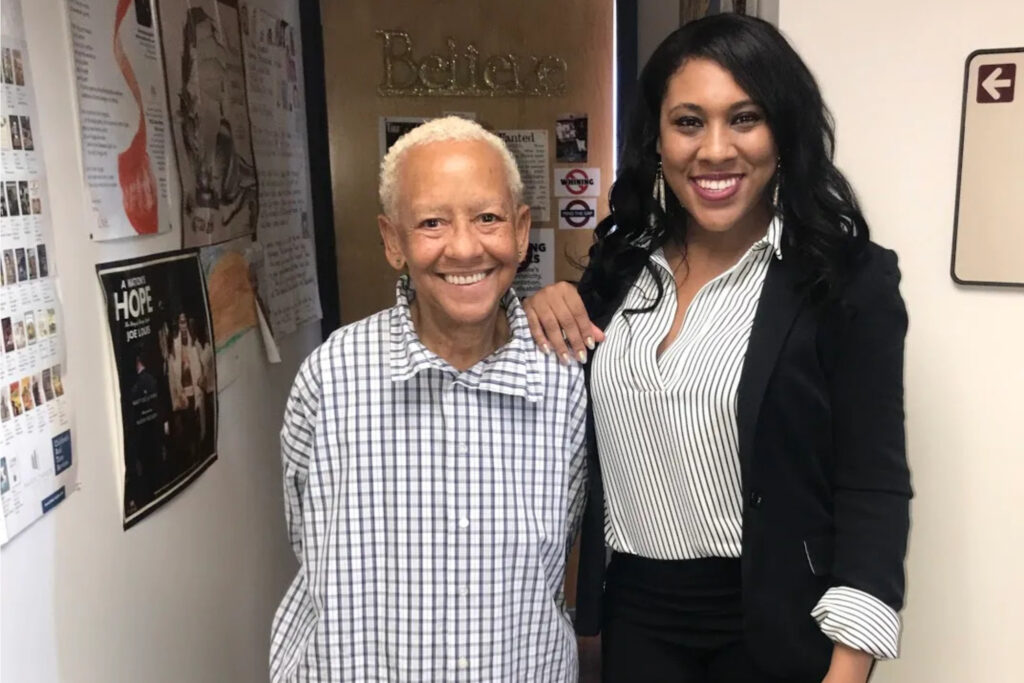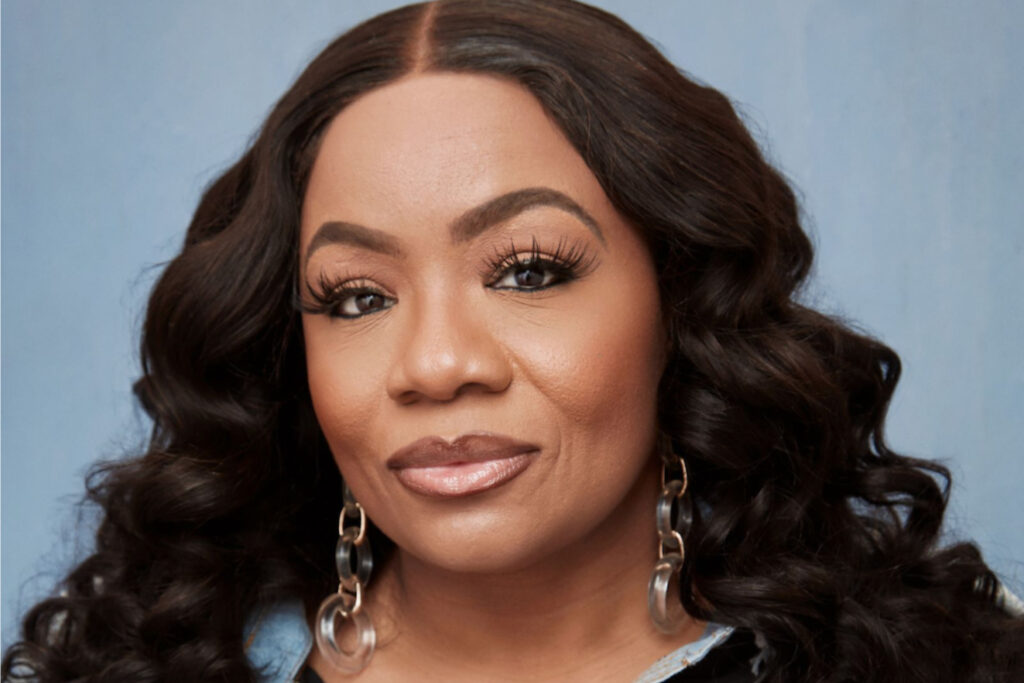“Everybody Needs to Know the Truth”: Daughter Shares WWII Black Tanker’s Untold Story
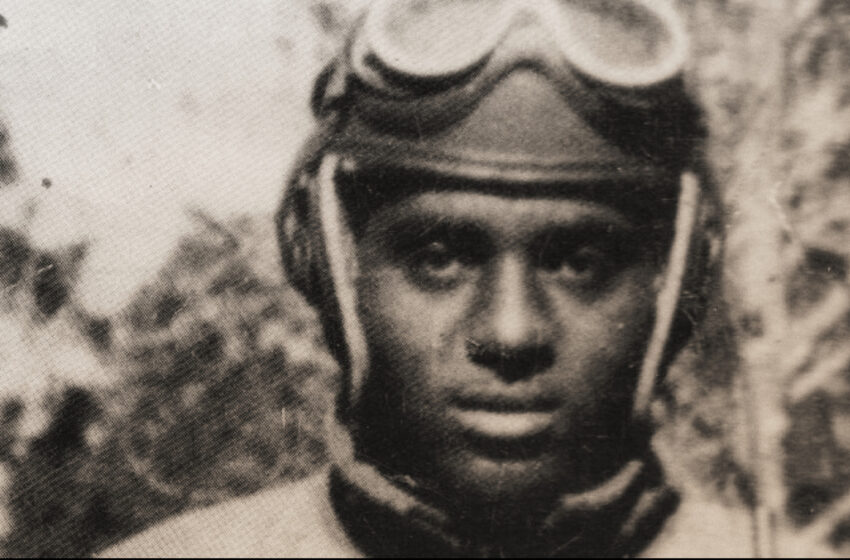
Staff Sergeant Johnnie Stevens was a tank commander with the 761st Black Panther Tank Battalion who served in WW2. (The Family of Johnnie Stevens/Doreen Stevens)
During World War II, United States military regulations forbade the possession of personal journals, especially about war life. Valorous WWII Sergeant Johnnie Stevens of the first Black 761st Tank Battalion in a segregated army secretly inked his arduous footsteps while immortalizing and memorializing the gory and grievous path to triumph as a Black war hero.
“We have taken a beating, but whoever says colored soldiers can’t fight is a damn lie,” Stevens once said of losing many brothers on the battlefield. Having enlisted in the Army in June 1942, the Georgia maverick believed that his “job was to chase Germans.”
National Geographic’s Erased: WW2’s Heroes of Color, which recently premiered, captures a cinematic four-part oral storytelling behind the silenced voices and untold stories of WWII soldiers of color. The final episode follows the resiliently predominantly Black 761st Tank Battalion, also known as the original Black Panthers, an elite tank unit of battle-tested veterans during the bloody Battle of the Bulge in December 1944.
With the insight from Sgt. Stevens’ day-by-day account, his daughter Doreen Stevens, appears in Episode 4 and proudly echoes her father’s words, finally giving the never-before-seen context behind the 761st’s personal battle experiences.
“We’re on a hill outside this village, but we’re treated better here than back at home,” Doreen read from her father’s diary. Within his journal’s pages, the valiant long-time New Jersey resident recalled his sense of freedom in Europe but not without focus on the mission to showcase the winning capabilities of a Black tank unit.
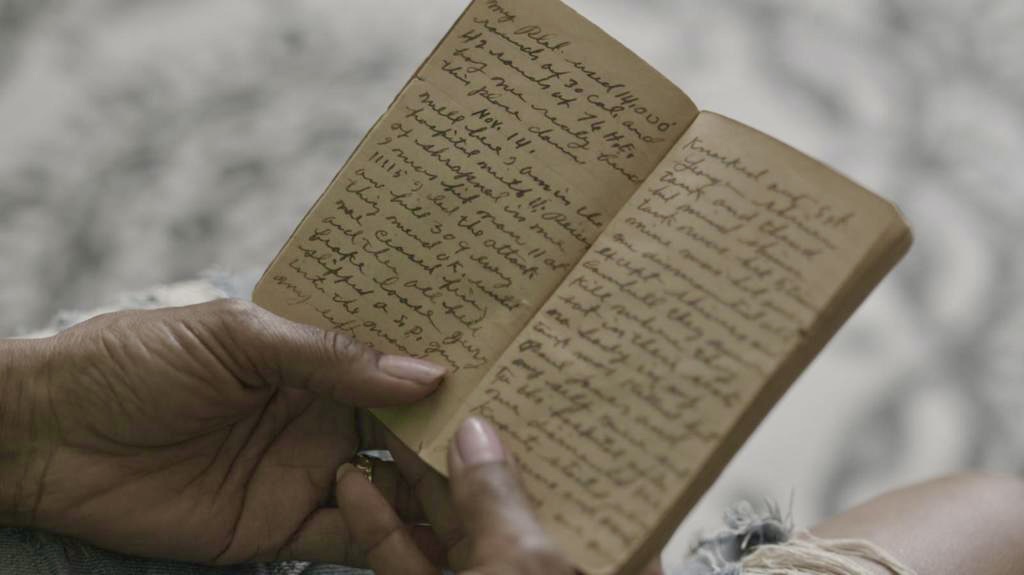
(National Geographic/Fabian Mandujano)
“We had to prove to the world, but Patton was desperate,” Stevens said.
Following a German counterattack, General George S. Patton of the Third Army called on Sgt. Stevens and his highly sought-after unit to fight in the renowned Battle of the Bulge in Belgium. They would go on to serve with multiple military forces, including the 26th and 87th Infantry Divisions.
“All hell has broken loose here in Belgium,” Doreen continued. “They are throwing everything at us except Hitler’s dress suit.”
Despite Patton’s lack of faith in the Black tankers, the Black Panthers and the 87th Infantry Division ultimately pushed back Adolf Hitler’s final advance and later inspired civil rights movements. Stevens fought until the end of the war. Before his passing, Sgt. Stevens earned the Purple Heart with Oak Leaf Cluster, the Bronze Star, the Presidential Unit Citation, and the European Theater medal with four battle stars. In 2006, Stevens and several other World War II Veterans received the French Legion of Honor in his late 80s.
After the documentary’s release, Doreen spoke with the Buckeye Review about her contributions to carrying on her father’s legacy.
“Everybody needs to know the truth,” said Doreen, who is devoted to safeguarding her father’s diary.
Buckeye Review: What does it mean to you and your family for you to star in Erased, acknowledging your father and his battalion’s legacy? And why is this story so relevant today?
Doreen Stevens: My father always fought the good fight. He believed in right versus wrong. That’s why he went into the service to help fight and to come back and be better. [It] didn’t always turn out the way. With my father, coming from Georgia, the climate was very different there. He looked for an opportunity that would enhance his life. Everybody in my family looked up to my father from day one. He’s such a strong family person and has always been a leader. For him to be in the role he had in the 761st Tank Battalion, I would expect no less. And being very humble and not talking about it much. For us to find out all these accolades that are being tossed upon him, everyone’s so happy. It’s time. Everybody needs to know the truth.
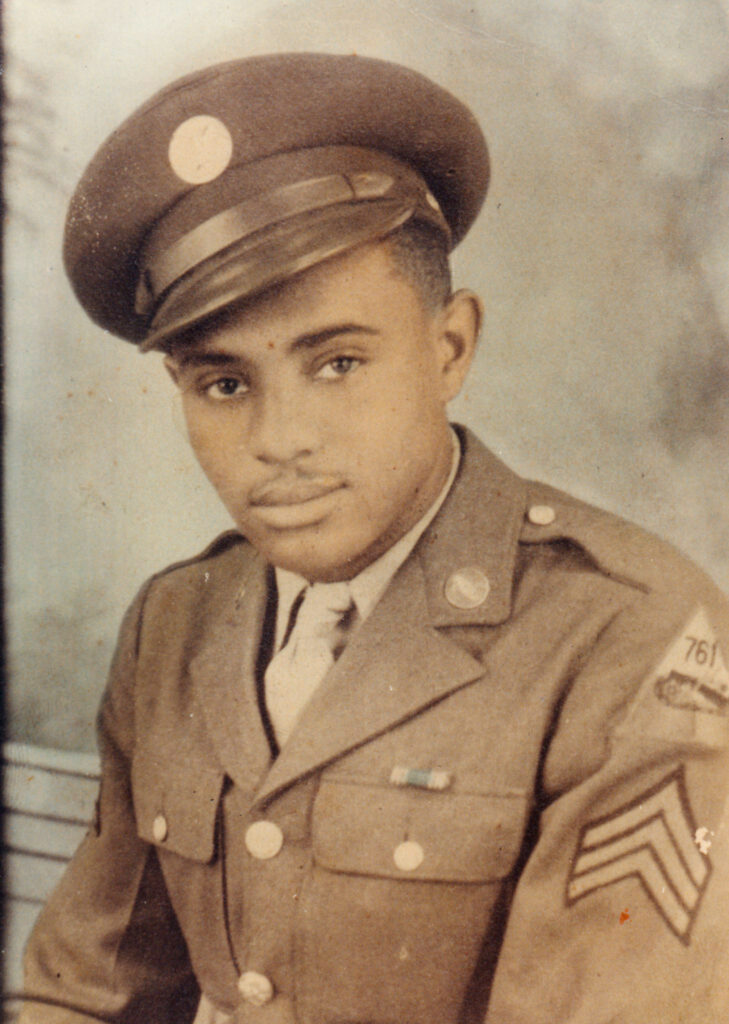
BR: Deemed as a rule breaker, your father recorded his war experiences boldly and unapologetically. Why do you believe it was important for him to do this despite the rules? Did he ever think his diary would see the light of the day?
DS: My father’s a very smart man. Somewhere in the back of his head, he wanted to make sure he had proof of what was going on. He dated it. He wrote down as much as he could, then hid it to ensure he could keep and bring it back. So that diary stays with me. I don’t let it out of my sight because everybody wants to see it. The diary is sacred in this family.
BR: Although on the winning side, I can’t imagine how hard it was for your father to grieve his fallen comrades on and off the battlefield. How did your father mentally navigate life outside of the Army?
DS: I think the Army prepared him for what he was coming back to. In the Army, everything is regimented. You have to be on time. You have to be here. You have to be here. That was my father’s life. And he knew there were procedures for everything. There are consequences for every action. And that’s how he lived his life. He lived like he was always in the Army. We could never be late for anything, anywhere.
BR: What advice do you have for descendants of war veterans who want to acknowledge their heroes out loud?
DS: Everybody should be recognized. Maybe you were sick or had an illness; you should be recognized for wanting to serve your country. That’s an honor and a privilege, and everybody doesn’t get to do it. When you have family members who might not have done it, they should still be applauded because one finger can’t do anything. You need five fingers to make a fist. Everybody working together will always be better than somebody working by themselves.
If you haven’t tuned in already, be prepared to be at the frontlines with some of the soldiers of color during World War II. Tune into Hulu and watch the trailer below:


